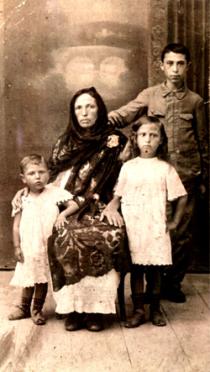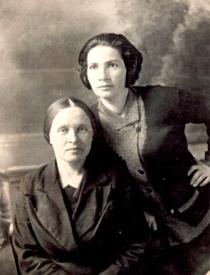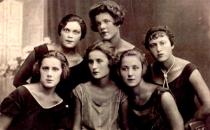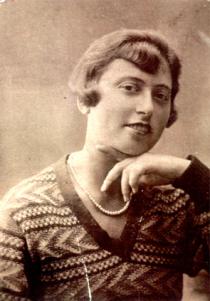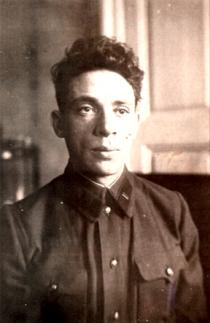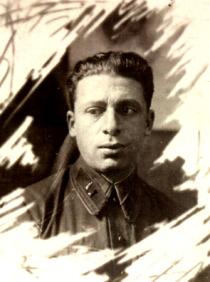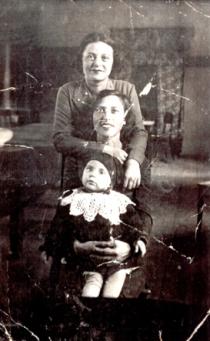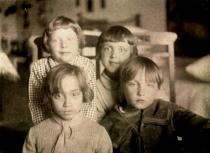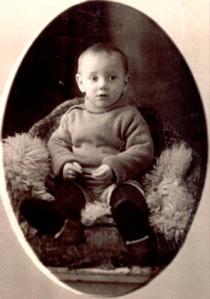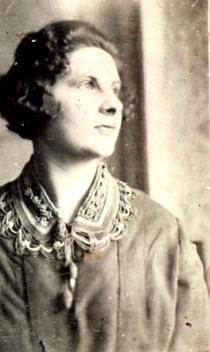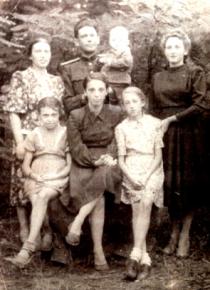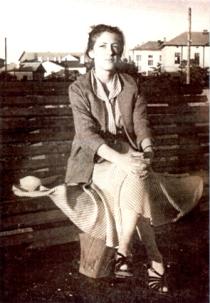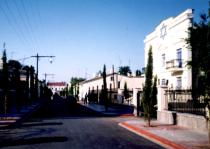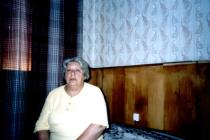This is my mother Rosa Leibert photographed with her friends in Odessa in 1930. My mama is the first on the right with a white necklace on.
In 1920, during the Civil War, the time of devastation and epidemics, my maternal grandmother Riva contracted cholera from her neighbors, whom she was trying to help, and died within few days leaving five children behind. Grandfather Abram remarried, but his second wife, whose name I don't remember since my mother didn't even want a mention of her, happened to be a poor replacement of the mother of the children. My mother's older sister Lusia, born in1903, got married and moved to live with her husband. My mother's brother Boris, born in 1905, finished a rabfak and entered Odessa Polytechnic College. He became an engineer. He lived in Odessa with his wife Polia, a Jew, and their daughter Bella. My mother's sister Ola (Jewish Golda), born in 1910, my mother Reizl, born in 1912, and the youngest Tsylia, born in 1915, had the hardest life with their stepmother. Actually, I don't know what was so bad about this woman. Perhaps, she just failed to win the girls' love. My mother didn't like her whatsoever. My grandfather's brother Haim came to Kerch to take my mother to Odessa, when she was 14. This happened before she finished the 7th form at school. Ola stayed in Kerch. In the late 1920s she married Adolph Vakerman, a Jewish man from Odessa, and moved to Odessa. In the late 1930s Ola's daughter Galina was born. Tsylia never got married and lived with Ola's family.
Haim's family lived in two little rooms near the dock in Odessa. However, Haim's wife welcomed Reizl, Haim's niece, warmly and never caused my mother's any discomfort about her living with them. Thus, my mother understood that it was hard for them to support her. Shortly after ward she went to work at the food preserve factory where she worked few years. Then she went to the cable factory. Having no education my mother worked as a laborer at both factories. In Haim's family my mother slept in a folding bed in the corridor. She gave her earning to Haim. She made friends in Odessa and they went to dancing parties, to the cinema and theater. When obtaining the passport, my mother changed her name to Rosa, a more convenient name at the time. My mother got fond of communist ideas like many young people of her time. She joined Komsomol and started a new life. In Haim's family Jewish traditions were still strong. They celebrated Jewish holidays, bought matzah on Pesach and conducted seder. However, things were changing. Haim worked in a dockers' crew on Saturdays and could not celebrate Sabbath any longer. When famine began in Ukraine they gave up kashrut eating whatever they could get to survive.
My mother was an active Komsomol member. On weekends she traveled to villages with a group of other activists to propagate kolkhozes. These groups arranged meetings and made concerts singing revolutionary songs, reciting poems for the communist regime. For her activities my mother was awarded a stay in a recreation center in Odessa in 1932. That was where she met my father, who was there on vacation.

